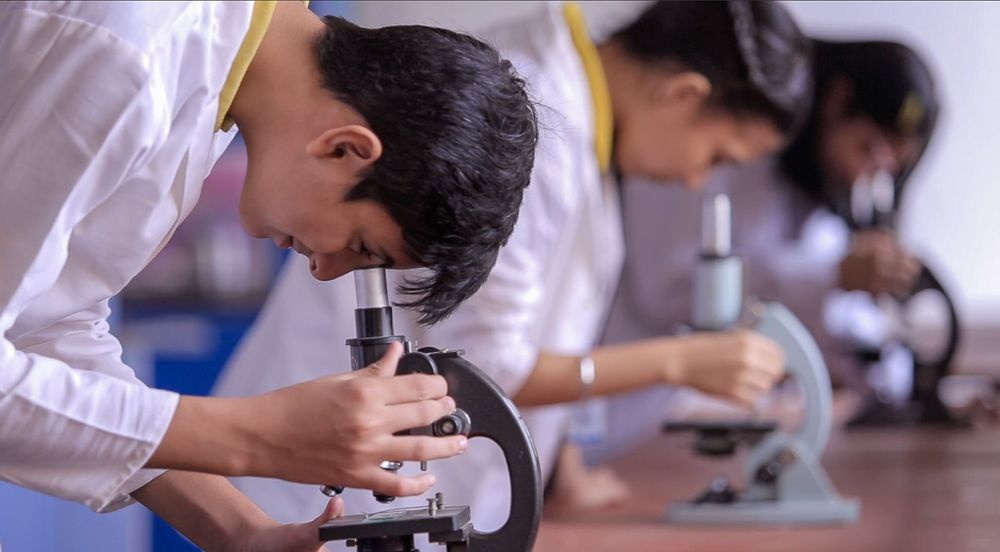Learning
Learning in school is a foundational experience that shapes a student's academic, social, and personal growth. Schools provide a structured environment where students acquire knowledge, develop skills, and explore their interests. Here’s an overview of key aspects of learning in school:
Types of Learning in School
-
Academic Learning:
- Core subjects: Mathematics, Science, Language Arts, Social Studies.
- Specialized courses: Arts, Music, Physical Education, Technology.
- Advanced programs: Honors, Advanced Placement (AP), or International Baccalaureate (IB).
-
Social-Emotional Learning (SEL):
- Focus on empathy, teamwork, and communication.
- Skills like managing emotions, setting goals, and developing relationships.
-
Skill-Based Learning:
- Practical skills like critical thinking, problem-solving, and time management.
- Vocational or technical education for specific careers.
-
Experiential Learning:
- Hands-on experiences like experiments, field trips, and community projects.
- Encourages real-world application of concepts.
-
Digital Learning:
- Use of online platforms, virtual classrooms, and educational apps.
- Focuses on tech literacy and adaptive learning.
Effective Learning Methods
-
Active Learning:
- Group discussions, debates, and interactive activities.
- Engages students and promotes critical thinking.
-
Project-Based Learning (PBL):
- Students work on long-term projects to explore real-world problems.
- Encourages research, creativity, and teamwork.
-
Blended Learning:
- Combines traditional teaching with digital tools.
- Allows personalized learning experiences.
-
Collaborative Learning:
- Group activities and peer-to-peer teaching.
- Builds communication and leadership skills.
-
Gamified Learning:
- Incorporates games or challenges to make learning fun.
- Enhances motivation and engagement.
School Facilities Supporting Learning
- Classrooms:
- Interactive boards, comfortable seating, and group work areas.
- Libraries:
- Access to books, journals, and digital learning resources.
- Labs:
- Science, technology, and innovation labs for practical learning.
- Outdoor Spaces:
- Playgrounds and eco-gardens for physical and environmental education.
Benefits of Learning in School
-
Academic Growth:
- Builds a strong foundation in various disciplines.
- Prepares students for higher education and career paths.
-
Personal Development:
- Instills discipline, time management, and resilience.
- Encourages curiosity and lifelong learning.
-
Social Skills:
- Promotes teamwork, leadership, and conflict resolution.
- Helps students build friendships and networks.
-
Cultural Awareness:
- Exposure to diverse perspectives and ideas.
- Teaches respect for different cultures and traditions.
Challenges in School Learning
-
Varied Learning Styles:
- Students have different ways of absorbing information (visual, auditory, kinesthetic).
- Schools need to adapt to diverse needs.
-
Access to Resources:
- Limited resources can hinder effective learning in some schools.
- Solutions include digital tools and community support.
-
Stress and Pressure:
- Academic competition and exams can create anxiety.
- Incorporating mental health support and SEL can alleviate stress.
How to Enhance Learning in Schools
-
Incorporate Technology:
- Use digital tools for personalized learning.
- Teach coding, digital literacy, and online safety.
-
Encourage Creative Thinking:
- Foster innovation through art, design, and open-ended projects.
-
Focus on Holistic Education:
- Combine academics with arts, sports, and life skills.
-
Parental Involvement:
- Engage parents in the learning process through regular updates and events.
-
Inclusive Education:
- Support students with special needs through adaptive learning methods.
- Promote equity and diversity in the classroom.
